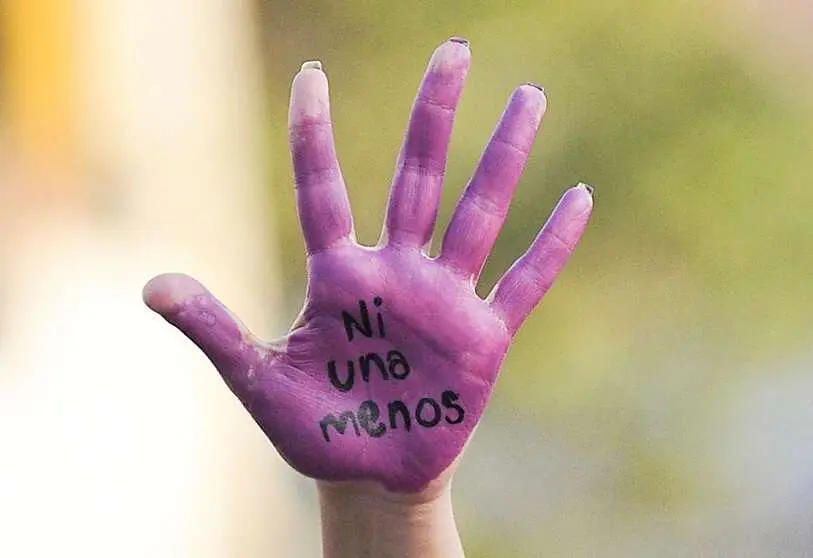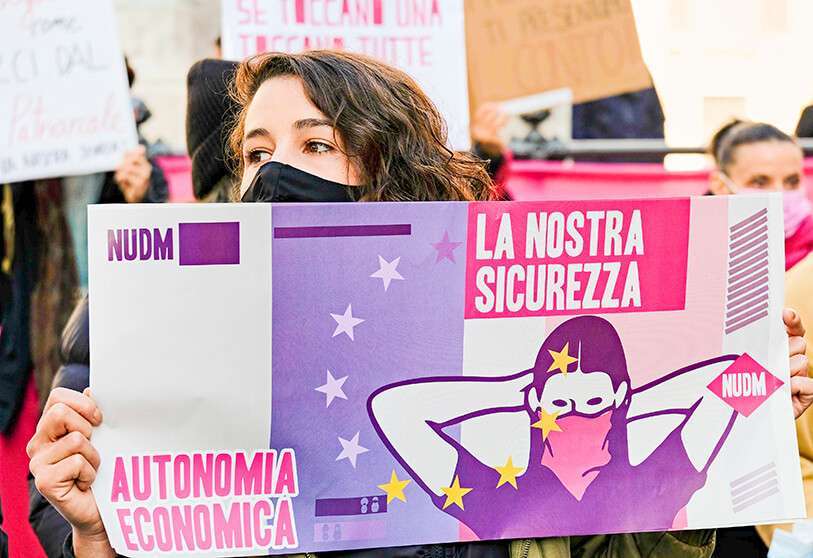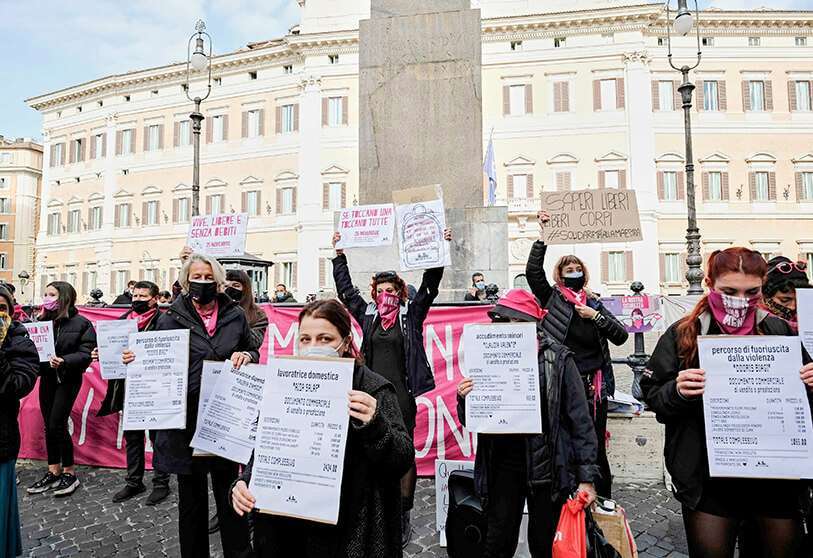Violence against women is still prevalent and has grown with the pandemic

Violence against women is a scourge that humanity has experienced since the beginning of time. Depending on which society we find ourselves in or the culture we share, the different forms of discrimination are repeated in a worrying way.
This is also true in the world of work. Sexually harassed, shouted at, threatened and even beaten, many women face situations of violence in their workplaces, a violence that has moved into an "online" environment during confinement, favoured by tools used for teleworking.
This is the complaint made by the European Trade Union Confederation (ETUC) on the occasion of the International Day of Violence against Women, and therefore it has urged the governments of the European Union (EU) countries to update their legislation on harassment at work, and to adapt it to the new situations.
"Very often, women face violence in their workplaces", the Assistant Secretary General of the CES, Esther Lynch, told EFE, stressing that on many occasions the violence they experience not only comes from their superiors or colleagues at work, but also in public areas "comes from clients or consumers".

In addition, the coronavirus crisis has highlighted that women working on the front line, particularly carers, transport workers, shop assistants or cleaners, have faced an increase in face-to-face abuse during these months.
"We've seen examples of women transport workers being shouted at, threatened, even beaten by people who don't want to wear the mask," as they "do their job of making sure they do," Lynch explained.
But that is not the only factor that has increased the risk of violence against women during the coronavirus pandemic; teleworking, which has been mandatory in many cases in recent months, has also been a factor at times.
Along these lines, and despite the fact that it may be thought that it "reduces the possibility of sexual harassment" in physical places, working from home has increased "surveillance" situations, so that, according to Lynch, "the computer or telephone becomes just another device for monitoring at home".
In addition to these cases, there are situations where women suffer violence in their own homes. "Now many women who are working from home cannot get out of these situations of violence," explains Lynch, adding that before the telework mandate, "they could leave their home to go to work and it was more common to break out of situations of domestic violence," added the ESC's deputy secretary-general.
To counter the new threat, European trade unions urged member states to ratify International Labour Organization (ILO) Convention 190, which commits them to preventing and addressing harassment both "offline" and "online".
The European Commission (EC) made the promotion of gender equality and women's empowerment a priority of its foreign policy on Wednesday by presenting a new action plan on the subject.
The initiative aims to achieve progress over the period 2021-2025, proposing that 85% of all new actions related to the European Union's (EU) foreign policy should contribute to gender equality and women's empowerment by 2025.
During the press conference to present the document, the European Commissioner for International Associations, Jutta Urpilainen, said that in 2019, 64% of the new external actions of the EU-27 included gender equality among their objectives.

To raise that figure, the new action plan introduces "strict" rules for implementing and monitoring gender mainstreaming in the different sectors, Brussels said in a statement.
So EU external assistance in all sectors, including infrastructure, the digital domain, energy, agriculture and mixed funds will have to integrate a gender perspective and support gender equality.
The Commission's proposal also seeks to promote a shared strategic vision and cooperation with Member States and partners at multilateral, regional and national levels. It therefore calls for the development of a common approach for all countries of the Union and a focus on concrete strategic issues.
"Careful gender analysis and close consultation with Member States, civil society organisations, women's and youth rights activists will provide a firm basis for action on the ground," says Brussels

Furthermore, the action plan calls for accelerating progress by focusing on "key" areas, such as combating gender-based violence or promoting the economic, social and political empowerment of women and girls.
It also emphasises universal access to health care, sexual and reproductive health and rights, gender equality in education and the promotion of equal participation and leadership in politics and public life.
Similarly, it introduces the gender perspective into new policy fields, such as ecological and digital transitions.
Brussels also calls for the EU itself to become an example of good performance with gender-sensitive and gender-balanced leadership at the highest political and management levels.
The initiative is also committed to paying more attention to measuring results and ensures that the EU will establish a quantitative, qualitative and inclusive monitoring system "to increase public accountability, ensure transparency and access to information on its assistance to gender equality worldwide".
The Commission, in cooperation with the European External Action Service, will analyse and monitor progress on the implementation of the Action Plan every year.
At the press conference, the High Representative of the Union for Foreign Affairs, Josep Borrell, regretted that no country in the world is on track to achieve gender equality in 2030, as set out in the UN's Sustainable Development Goals, and therefore called for "rapid" action, and stressed the "symbolic" value of presenting the action plan on the International Day for the Elimination of Violence against Women.
The EU executive added that the health and socio-economic consequences of the pandemic affect women and girls "disproportionately", as they are more often working in the informal economy or in "vulnerable" sectors.
Borrell said that the plan seeks to take action against discrimination, with special attention to women with disabilities, immigrants, or those who are discriminated against on the basis of age or sexual orientation.
Asked about the opposition expressed by Poland and Hungary to the use of the term "gender equality" in the action plan during the meeting of development ministers of the EU-27 on Monday, Urpilainen said she was satisfied with the "overwhelming" support of the Member States for the document.









